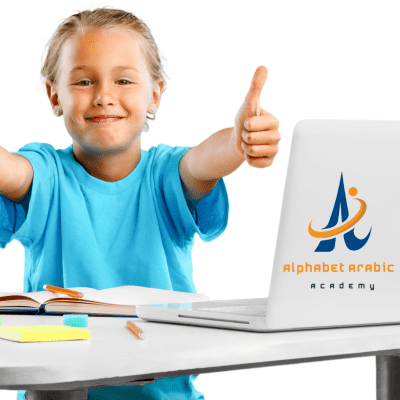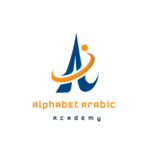Make Learning Arabic Fun for Your Child! 🌟
Want your child to learn Arabic effortlessly? With our interactive and engaging Arabic course, kids will master the language through fun games, songs, and stories—no boring lessons! Our expert tutors make learning easy, enjoyable, and effective.
🎯 Private one-on-one lessons
🎮 Educational games & activities
📅 Flexible schedules
💰 Affordable pricing

Give your child the gift of language! Register today and start their Arabic journey with joy. 🚀✨
Learning Arabic for kids has never been easier or more fun! With the right tools and engaging activities, children can quickly grasp the language while enjoying the process. Whether you’re looking for interactive games, songs, or structured lessons, there are plenty of resources to make learning Arabic an exciting journey. Let’s explore the best ways to help kids learn Arabic online. contact us
Best Way to Learn Arabic for Kids online from home
The best way for kids to learn Arabic is through immersive and engaging experiences. A combination of structured lessons, interactive games, and real-world practice helps children develop their reading, writing, speaking, and listening skills effectively. Online courses like those offered by Alphabet Arabic Academy provide a structured and enjoyable learning path at an affordable price.
How to Learn Arabic Alphabet for Kids and adults
The Arabic alphabet consists of 28 letters, and learning them is the foundation of mastering the language. Flashcards, alphabet songs, and tracing worksheets can make recognizing and writing Arabic letters easier. Apps like AlifBee and Noorani Qaida help kids learn letter shapes and pronunciation in a fun way.
How to Learn Arabic Fast for Kids from zero
To accelerate learning, children should engage in daily practice, watch Arabic cartoons, listen to Arabic songs, and use language-learning apps. Repetition, interactive exercises, and guided lessons from experienced tutors ensure steady progress.
How to Learn Arabic for Children anytime anywhere
Children learn best when lessons are engaging and age-appropriate. Online courses designed specifically for kids, like those from Alphabet Arabic Academy, focus on fun and interactive teaching methods. Storytelling, games, and role-playing are effective ways to reinforce learning.
How to Learn Arabic for Beginners all ages
For beginners, starting with basic vocabulary, greetings, and simple sentences helps build confidence. Flashcards, mobile apps, and guided lessons introduce fundamental language concepts in an easy-to-understand format.
How to Learn Simple Arabic from resources
Simple Arabic learning starts with basic words and phrases used in everyday life. Songs, short stories, and interactive activities help kids remember vocabulary easily.
Easy Way to Learn Arabic easily and simple
The easiest way for kids to learn Arabic is through engaging activities such as Arabic-themed games, songs, and storytelling. Interactive apps and colorful books make the learning experience enjoyable.
How to Learn Arabic with native speakers
A well-rounded approach that includes listening, speaking, reading, and writing is essential. Courses with structured lessons, interactive exercises, and real-life practice are the most effective.
Arabic Language for Kindergarten and children
For young learners, fun and colorful learning resources like flashcards, Arabic nursery rhymes, and interactive games provide an engaging introduction to the language.
Online Courses Tailored for Kids with free books at course
Enrolling in structured online courses provides children with step-by-step guidance from professional teachers. Alphabet Arabic Academy offers flexible and interactive classes designed for kids of all levels.
Fun Resources for Learning
Interactive Games Galore
Arabic learning apps and online games make language acquisition fun and effective. Platforms like Duolingo and Dinolingo offer game-based lessons that help kids stay engaged.
Essential Arabic Phrases
Common Greetings Taught
Teaching kids simple greetings like “Marhaban” (Hello) and “Shukran” (Thank you) builds their confidence in speaking Arabic from the start.
Learning Arabic Through Songs
Rhythm Memory Aids
Songs help children memorize words and phrases effortlessly. Arabic nursery rhymes and educational music programs make learning more enjoyable.
Using Cartoons for Engagement
Visually Stimulating Methods
Watching Arabic cartoons helps kids develop listening skills and exposes them to native pronunciation and everyday conversations.
Storytelling as a Learning Tool and online programs
Creative Imagination Boosters
Storytelling captivates children’s attention while teaching them new words and sentence structures in context.

Practical Conversational Skills
Role-Playing Scenarios
Role-playing daily situations, such as ordering food or greeting others, improves conversational fluency.
Cultural Immersion for Kids
Virtual Cultural Exploration
Learning about Arab culture through festivals, traditions, and food enhances a child’s understanding and appreciation of the language.
Tips to Maintain Interest
Achieving Fluency Goals
Keeping lessons fun and interactive encourages kids to stay motivated and consistent in their learning journey.
Daily Practice Routines
Consistency is Key
Establishing a daily practice schedule with short, engaging activities helps reinforce learning.
Using Applications for Learning
Playful Educational Apps
Apps like Arabee and AlifBee offer interactive lessons that make learning engaging and enjoyable.
Parental Guidance in Learning
Involvement Strategies
Parents play a key role in encouraging their kids by setting up a learning-friendly environment and practicing Arabic together.
Community Support and Forums
Connecting Globally
Joining online forums and language exchange groups helps kids practice with other learners worldwide.
Monitoring Progress Effectively
Set Achievable Milestones
Tracking progress with small, achievable goals keeps kids motivated and provides a sense of accomplishment.
Frequently Asked Questions
What age is best to start?
Starting age varies, but 5-7 years old is ideal.
Can online games aid learning?
Yes, games make learning fun and engaging.
How to choose a suitable online course | join us?
Look for age-appropriate and interactive content.
Are parental controls necessary?
Yes, ensure content is suitable and safe.
What tools enhance pronunciation?
Audio guides and speech recognition help greatly.
Get started with an engaging and effective Arabic learning program today! Visit Alphabet Arabic Academy to explore affordable courses starting at just $40 per month. Join us today via our Contact Us page!


